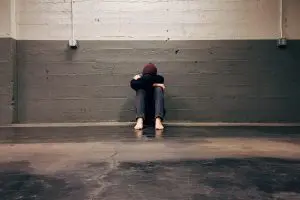Depression is a common emotion that can affect people after they have a heart attack or experience another medical problem. It can be challenging to cope with the changes in your life after a health scare, and it’s normal to feel overwhelmed, sad, anxious, or angry. The following blog will discuss the different types of depression that can occur after a heart attack or other medical problem, and it will provide tips for how you can manage your emotions and get back on track.
1) Situational Depression
This type of depression usually occurs in the first few months after a heart attack or other medical event. It is normal to feel down during this time as you are adjusting to your new reality. However, if your symptoms persist for more than a few months or if they are interfering with your ability to function in day-to-day life, it may be time to seek professional help.
There are many ways that you can manage situational depression. First, it is essential to understand that your feelings are normal and that you are not alone. Talking to friends and family members who have been through similar experiences can be helpful. Additionally, there are many resources available online and in community centers that can provide support and information. Finally, if your symptoms are severe or persistent, you may need to seek professional help from a therapist or counselor.
If you are struggling with situational depression after a heart attack or other medical event, know that you are not alone and that there are ways to manage your symptoms. Seek professional help if your symptoms are severe, and remember that this is only a temporary phase. Things will eventually get better.
2) Major Depression
Major depression is a more severe form of depression that can occur after a heart attack or other medical event. This type of depression is characterized by persistent and severe symptoms, such as loss of interest in activities, fatigue, changes in appetite, sleep problems, and feelings of worthlessness or hopelessness. If you are experiencing these symptoms, it is essential to seek professional help. Major depression can be treated with therapy, medication, or a combination of both.
If you are struggling with major depression after a heart attack or other medical event, know that there is help available. Seek professional treatment from a therapist or counselor, and talk to your doctor about whether medication may be right for you. With treatment, you can start to feel better and get back to your life.
3) Post-Traumatic Stress Disorder
Post-traumatic stress disorder (PTSD) is a type of anxiety that can occur after a heart attack or other medical event. This condition is characterized by intrusive thoughts, flashbacks, and avoidance of anything that reminds you of the event. If you are struggling with PTSD after a heart attack or other medical event, it is essential to seek professional help. PTSD can be treated with therapy, medication, or a combination of both.
If you are struggling with depression after a heart attack or other medical event, it is essential to seek professional help. There are many treatment options available, and the best course of action will depend on your individual needs. If you are struggling with depression, please don’t hesitate to reach out for help. You deserve to live a happy and fulfilling life.
4) Grief
Grief is a natural response to loss, and it can be especially intense after a heart attack or other medical event. It is essential to allow yourself to grieve in whatever way feels right for you. Some people find comfort in talking about their feelings, while others prefer to keep them private. There is no right or wrong way to grieve. However, if your grief is interfering with your ability to function on a day-to-day basis, it may be time to seek professional help. Grief can be treated with therapy, medication, or a combination of both.
Depression Therapy Help in Lakewood CO & Longmont CO
If you are struggling with grief after a heart attack or other medical event, know that you are not alone. Seek professional help if your symptoms are severe, and allow yourself to grieve in whatever way feels right for you. With treatment, you can start to feel better and get back to your life.
We invite you to call us at 720-551-4553 for a free 20-minute phone consultation with a therapy specialist. You can learn more about our Depression Therapy services by clicking this link.
Self Care Impact Counseling envisions a new age of counseling for adolescents, adults, couples & groups that makes a REAL difference with core values of GROWTH | BALANCE | COMPASSION | INNER HARMONY.

